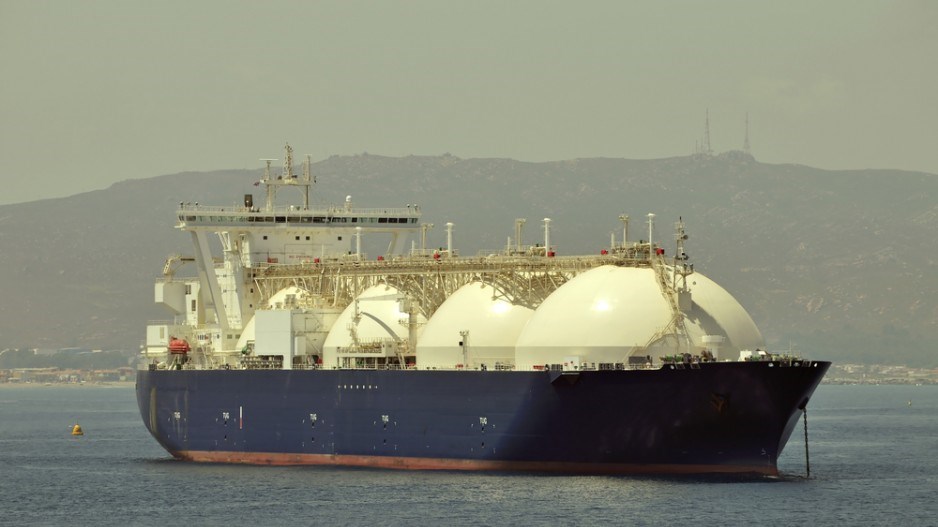LNG will continue to be oversupplied until the early 2020s and low prices will delay LNG projects in British Columbia, according to Scotiabank’s January 28 commodity price index.
The price of LNG has fallen due to low oil prices, less demand from countries like Japan, South Korea, China, India and Taiwan, and more supply coming on board from new projects in Australia, the United States, Malaysia and Indonesia.
"The prices [for LNG], which several years ago had been quite high, have really come down a lot," said Patricia Mohr, an economist with Scotiabank.
"It's because of two developments: one is that oil has moved very low and a lot of price contracts for LNG in Asia are tied directly to crude oil. But it’s also because there is more supply: there are new projects coming on stream in Australia, Malaysia, and now the U.S. Gulf Coast and I think that with quite slow economic activity around the world, the supply demand balance for LNG over the balance of the decade looks to be in surplus."
Because oil is low, energy consumers are choosing oil over alternatives like LNG (for instance, in China fuel oil has been cheaper than imported LNG).
"You get consumers, especially industrial consumers, shifting into petroleum products away from higher-priced energy such as LNG," Mohr said, noting that the complex production process to make liquefied natural gas contributes to a higher price.
Read: Current commodity, mining downturn unprecedented, says Moody's
Read: Petronas taking two floors at Park Place Tower
Amidst the ongoing commodities gloom, oil prices rallied in mid-January.
Oil is up today to $35 a barrel, compared with the $27 low it hit earlier this month, after signs that Russia and Saudi Arabia might work together to cut production. The Canadian dollar is also up today to US$0.71.
With sanctions lifting on Iran, the oversupply situation is expected to continue, Mohr said in her commentary.
“Oil prices will remain unusually low and choppy until signs of a significant global output drop emerge — made difficult by the production ambitions of Iraq.”
For Canada, this means that new projects and drilling activity in the Alberta oil sands will be put on hold, but existing production will continue.
Metal and ore prices continue to be depressed, mostly because of fears of slowing demand from China. But for Vancouver's mining industry the news isn't all doom and gloom, Mohr said: the price of gold — a safe haven — has risen along with fears about the volatility of the global economy.
@jenstden




